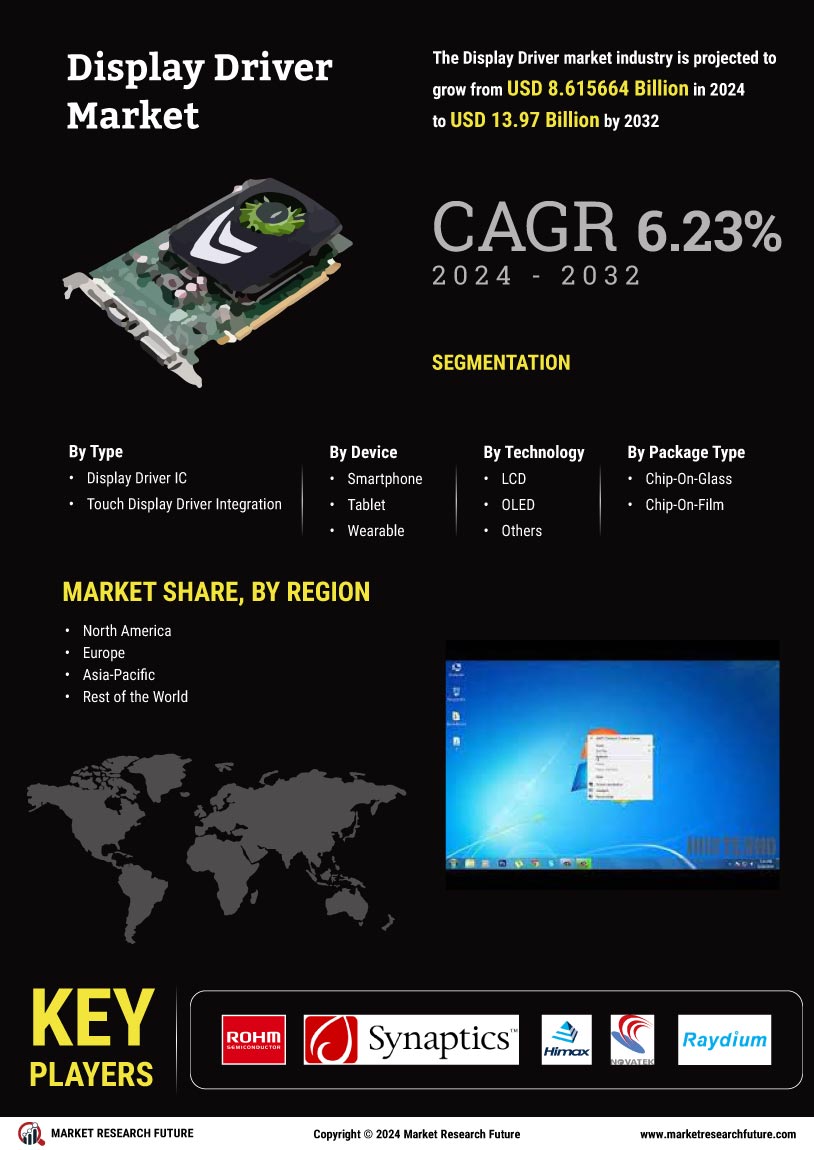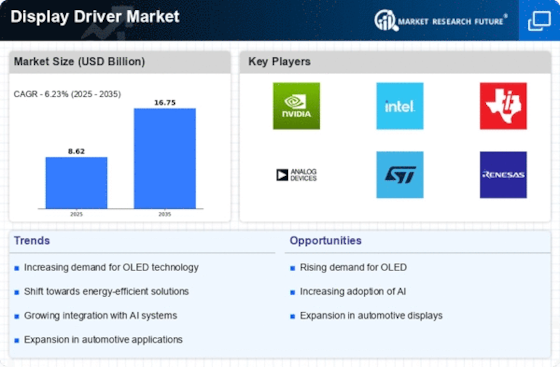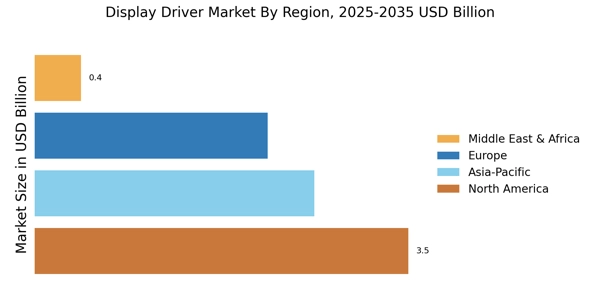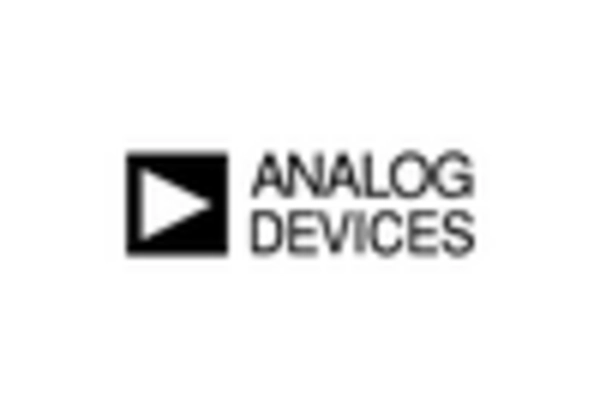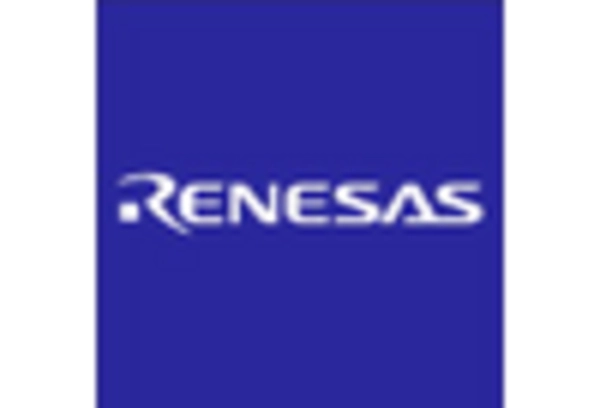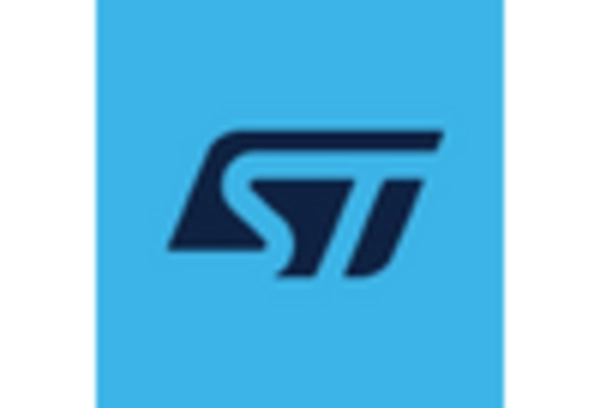Advancements in OLED Technology
The Display Driver Market is significantly influenced by advancements in Organic Light Emitting Diode (OLED) technology. OLED displays are increasingly favored for their superior color accuracy, contrast ratios, and energy efficiency compared to traditional LCDs. As manufacturers continue to invest in OLED technology, the demand for specialized display drivers that can effectively manage these displays is expected to rise. Recent estimates suggest that the OLED display market could reach a valuation of over 30 billion dollars by 2026, indicating a robust growth trajectory. This trend underscores the necessity for innovative display driver solutions that can harness the full potential of OLED technology within the Display Driver Market.
Integration of Smart Technologies
The integration of smart technologies into display systems is a key driver for the Display Driver Market. As devices become increasingly interconnected, the need for display drivers that can support smart functionalities is growing. This includes features such as touch sensitivity, voice recognition, and connectivity with IoT devices. The market for smart displays is anticipated to expand rapidly, with projections indicating a growth rate of approximately 12% annually over the next few years. This trend suggests that display driver manufacturers must innovate to create versatile solutions that can accommodate the evolving landscape of smart technology within the Display Driver Market.
Increased Focus on Energy Efficiency
The Display Driver Market is witnessing a heightened emphasis on energy efficiency, driven by both consumer demand and regulatory pressures. As environmental concerns become more pronounced, manufacturers are compelled to develop display drivers that minimize power consumption while maintaining performance. Innovations in energy-efficient display technologies, such as low-power display drivers, are becoming increasingly prevalent. Market data suggests that energy-efficient display solutions could account for a significant portion of the display driver market by 2027, as consumers and businesses alike prioritize sustainability. This trend not only aligns with global energy conservation goals but also presents a competitive edge for companies that can deliver energy-efficient products within the Display Driver Market.
Growth of the Automotive Display Sector
The automotive sector is emerging as a pivotal driver for the Display Driver Market, particularly with the increasing integration of advanced display technologies in vehicles. As automotive manufacturers incorporate digital dashboards, infotainment systems, and heads-up displays, the demand for sophisticated display drivers is likely to escalate. Recent market analyses indicate that the automotive display market is projected to grow at a rate of around 10% annually, reflecting the industry's shift towards more technologically advanced vehicles. This growth presents opportunities for display driver manufacturers to develop tailored solutions that cater to the unique requirements of automotive applications within the Display Driver Market.
Rising Demand for High-Resolution Displays
The Display Driver Market is experiencing a notable surge in demand for high-resolution displays, driven by the increasing adoption of 4K and 8K technologies across various sectors. As consumers seek enhanced visual experiences in televisions, smartphones, and gaming devices, manufacturers are compelled to innovate and produce advanced display drivers that can support these resolutions. According to recent data, the market for high-resolution displays is projected to grow at a compound annual growth rate of approximately 15% over the next five years. This growth is likely to stimulate further advancements in display driver technology, as companies strive to meet the evolving needs of consumers and maintain competitive advantages in the Display Driver Market.
